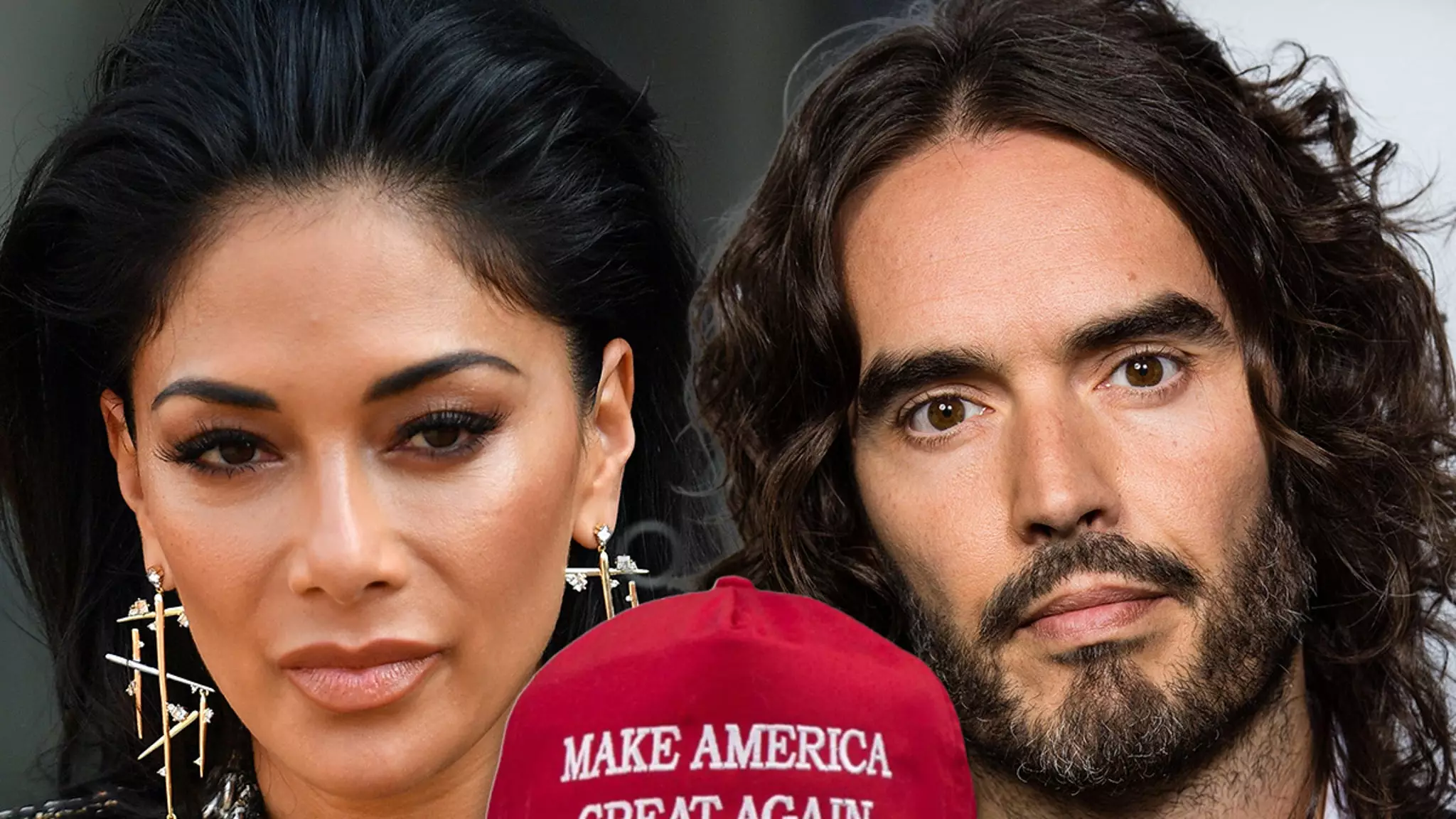Nicole Scherzinger recently found herself in hot water after a seemingly innocent engagement with a social media post by Russell Brand, which featured a hat that echoed Donald Trump’s slogan but with a religious twist. The backlash was swift, as many interpreted her actions as aligning with a political stance that many find controversial. In a more connected world, where social media infamy can spread like wildfire, celebrities are under increasing scrutiny for their online behaviors and affiliations. Scherzinger’s apology, posted on her Instagram Stories, reflects the growing necessity for public figures to tread carefully in such a divisive landscape.
In her apology, Scherzinger expressed regret for any hurt she caused, explaining that she did not intend to inject herself into the political arena. This reinforces the notion that social media can blur the lines between intention and interpretation. While she aimed to highlight a message of faith and positivity, the political implications of her comment led many to draw correlations that she hadn’t anticipated. Her assertion that her beliefs do not necessarily align with public assumptions showcases the importance of being clear and thoughtful with social media interactions, especially for those in the public eye.
The mention of the hat’s message, “Make Jesus First Again,” raises compelling questions about the intersection of faith and politics. For Scherzinger, the hat symbolized a promotion of love and compassion, ideologies she closely associated with her Christian faith. However, the phrasing of the slogan parallels a highly charged political context, leading to understandable confusion among her followers. By invoking her faith, she inadvertently opened herself up to interpretations that went beyond her original intent. The ability to separate religious sentiments from political affiliations is growing increasingly difficult in today’s climate.
Scherzinger emphasized the need for unity and compassion in her message, urging followers to come together despite divisive issues. This plea for solidarity encapsulates the current societal imperative to foster understanding, particularly in the wake of events that can fracture communities. However, her note failed to address another significant point of contention: her choice to follow Brand, which raises ethical questions given his previous controversies regarding sexual assault allegations. It raises the question of how public figures navigate their professional relationships while maintaining their stance on critical social issues.
Moving forward, Scherzinger’s case illustrates the imperative for ongoing conversations about responsibility, intention, and interpretation in the public sphere. As celebrities wield considerable influence, the way they engage with social media holds weight in shaping public discourse. Apologies, like Scherzinger’s, can serve as a moment for reflection, not just for the individual involved but for society as a whole regarding how we digest and react to public figures’ actions. It invites a broader discussion about empathy, understanding, and the importance of being informed in an age where everyone is a potential influencer.

